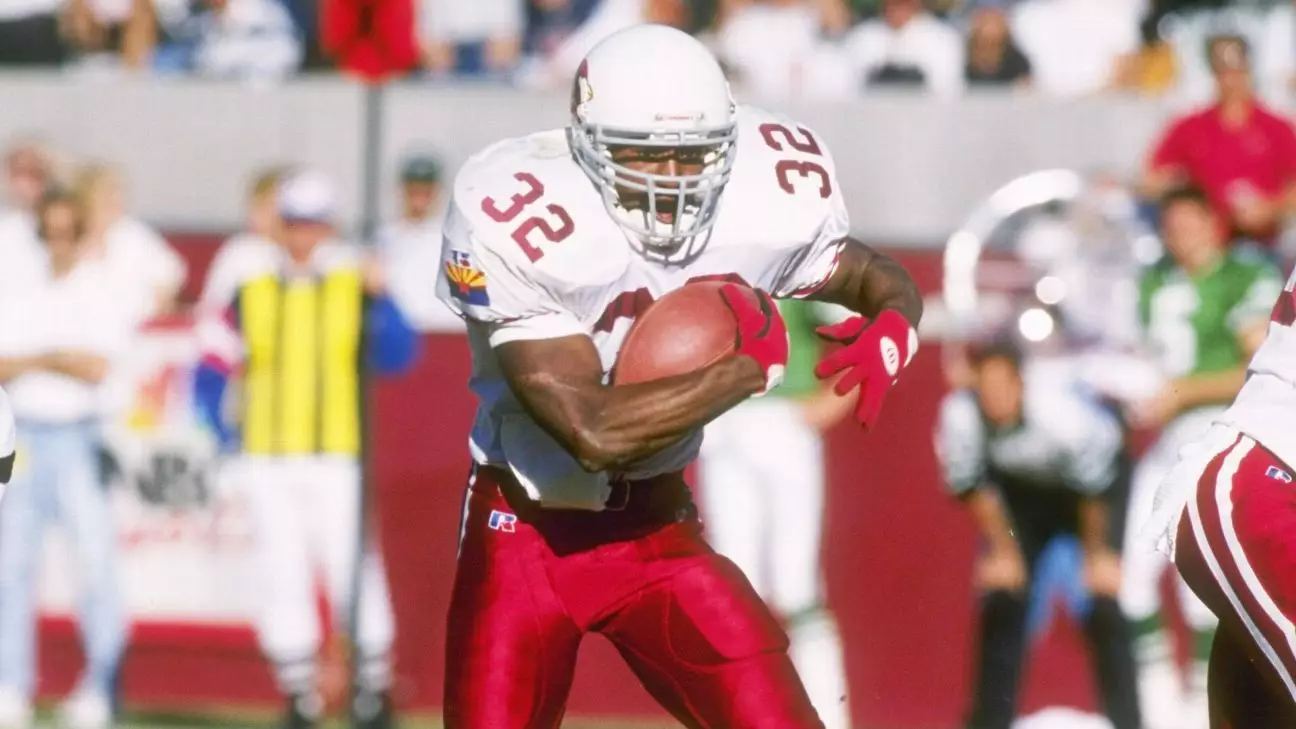Disturbing Revelations The Dark Side of an NFL Career
When we think of professional sports, particularly the NFL, images of glory, athleticism, and stardom come to mind. However, recent revelations about former NFL running back LeShon Johnson remind us that there is often a darker side lurking beneath the surface. Johnson, once celebrated for his prowess on the field, now finds himself mired in controversy and legal trouble. These events have cast a shadow over his once bright career, highlighting troubling issues that can accompany fame and success.
Johnson’s story took a shocking turn when he was charged with serious federal offenses related to dogfighting. This crime is not just illegal; it’s deeply cruel and highlights a disturbing intersection of power and inhumanity. The U.S. Department of Justice has accused him of violating the Animal Welfare Act, with a grand jury indictment outlining 21 counts against him. The case became even more alarming when authorities seized 190 dogs, mostly pit bulls, in what is one of the largest confiscations of its kind in U.S. history.
The stark contrast between Johnson’s past achievements and his current predicament offers a sobering reminder of how quickly fortunes can change. It’s a narrative that challenges us to look beyond the glamour of professional sports and consider the complex realities that some athletes face off the field. As fans and citizens, we must grapple with these unsettling truths and their broader implications.
Key Takeaways
- LeShon Johnson’s case underscores the dark side of fame and its potential to mask illicit activities.
- The involvement in dogfighting highlights severe ethical and legal issues within sports culture.
- Society’s role in promoting animal welfare is crucial to preventing such cruelty.
- Public figures should be held accountable for their actions, regardless of their status.
The Disturbing Nature of Animal Fighting
Animal fighting is more than just a criminal activity; it’s a symptom of deeper societal problems. The indictment against Johnson brings this grim reality into focus. Using animals for brutal entertainment reflects a moral failing that persists across various industries, not just sports. The fact that so many dogs were seized from one individual raises disturbing questions about systemic failures that allow such cruelty to thrive. It’s not merely about one person’s actions but about a culture that often overlooks suffering when it involves celebrities or influential figures.

The Implications of Celebrity Status
Johnson’s case exemplifies how celebrity status can sometimes shield individuals from immediate consequences. His achievements as an NFL player afforded him influence and power that may have contributed to unchecked behavior over time. While he rushed for nearly 1,000 yards during his career, these accomplishments do not excuse his alleged actions. This situation raises critical questions about accountability: Should celebrities be held to higher standards? The Department of Justice’s decision to pursue charges suggests that fame should never override responsibility.
The Role of Society in Animal Welfare
The public reaction to Johnson’s alleged crimes has sparked necessary conversations about society’s duty to uphold animal rights. Statements from officials like Attorney General Pamela Bondi emphasize the need for stringent penalties against animal abuse. This isn’t just about punishing one individual; it sends a strong message that such cruelty will not be tolerated. To combat injustice effectively, society must unite in demanding comprehensive measures to protect animals and deter similar acts from occurring in the future.

A Call for Change and Awareness
The charges against Johnson serve as a wake-up call for fans and advocates to reassess their stance on animal rights and ethics surrounding pet ownership. Education and awareness are essential in building a compassionate society where cruelty is actively challenged. If there’s one takeaway from this distressing incident, it’s that combating cruelty requires vigilance, advocacy, and unwavering dedication to justice both on and off the field. By fostering awareness, we can cultivate empathy towards all living beings.
Final Thoughts
While professional sports often highlight stories of triumph and glory, it’s important to remember the complexities behind every athlete’s journey. LeShon Johnson’s fall from grace serves as a poignant reminder of how easily success can be overshadowed by poor choices and unethical behavior. As followers of sports or concerned citizens, we must hold public figures accountable while advocating for greater protections against animal cruelty. Only through collective effort can we hope to foster positive change in both sports culture and society at large.
NFL
LeShon Johnson
animal welfare
celebrity accountability


Leave a Reply